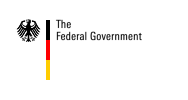The world's seven leading industrialised nations plus Russia (G8) take their global responsibility seriously: on several occasions in the past the G8 have launched initiatives to reduce the debt burden of the world's poorest countries. That is the prerequisite if the national economies in these countries are to stand a chance of recovery. And only then will there be the chance to help large parts of the world's population to get out of poverty.
The international community intends to significantly reduce poverty in the world by 2015. One of the goals agreed at the Millennium Summit in 2000 was to halve the number of people in the world living in extreme poverty and hunger.
Germany's debt relief initiative
At the G8 Summit in Cologne in 1999, the German G8 Presidency proposed a more far-reaching initiative on debt relief: up to 90 per cent of the debts of the world's poorest countries were to be relieved. So that it becomes a sustainable solution, the debt relief is linked to measures to combat poverty.
Countries with a per capita income below the official poverty line as defined by the World Bank of $895 per year can be included in this initiative. The criterion for debt relief is foreign debt in excess of 150 per cent of proceeds from exports, or 250 per cent of public revenue.
48 states currently fulfil this criterion and have been included in the group of the world's most heavily indebted poor countries (HIPCs). Most of them are in sub-Saharan Africa. In return for debt relief, these countries must undertake to fight poverty and to introduce economic and social reforms, including improving good governance, democracy and human rights. The first step is the suspension of repayments and interest payments.
Participating countries are themselves responsible for preparing Poverty Reduction Strategy Papers (PRSPs). The money released is to be used to fight poverty in their own country. That promotes sustainable, positive development.
In addition, in 2005 the finance ministers of the G8 countries agreed to grant certain countries 100 per cent debt relief. The debts of 20 countries, 16 of them in Africa, were thus completely written off.
One consequence of debt relief: more education
Debt relief has a direct, positive impact on education systems in the affected countries. One of the most important causes of poverty, namely lack of school education, can thus be combated.
For example, debt relief for Nigeria released funding which estimates suggest could lead to some 120 000 new teachers being employed. That would enable 3.5 million children to go to school. Tanzania has doubled the number of children in primary education; 31 000 new school rooms and 1000 new schools have been built.
Expenditure on education and health has been more than doubled in the 23 African countries whose debt has been relieved so far: from $4.1 billion annually in 1999 to $8.4 billion in 2004.
Developing countries: equal partners
The G8 want partnership on an equal footing with developing countries. The German Presidency has invited the following African states to take part in the G8 Summit in Heiligendamm in June 2007: Algeria, Egypt, Ghana, Nigeria, Senegal and South Africa. The combined population of these countries is 325.2 million people, around 30 per cent of the population of Africa.
Discussions will be focussing on four priority areas of action aimed at promoting "growth and responsibility":
- Good governance: The key to peace, stability and sustainable economic growth.
- Sustainable investments: Germany supports measures to improve Africa's investment climate and to facilitate private investments.
- Peace and security: The key preconditions in the fight against poverty.
- The fight against HIV/AIDS, malaria and tuberculosis: The spread of AIDS is to be stopped by 2015.
Federal Chancellor Angela Merkel said at the opening of the 24th France-Africa Summit in Cannes in February 2007: "Africa is becoming a self-confident political player and is becoming increasingly important in international politics. Africa is also an important partner for economic reasons. Over the past few years we have witnessed much economic and political progress: more economic growth, more democratic governments, fewer conflicts"
In the coming weeks leading up to the G8 Summit in Heiligendamm (6 - 8 June 2007) articles on political initiatives launched by the G8 countries will be posted here. They will explain what the G8 countries are doing and how successful their initiatives have been.

